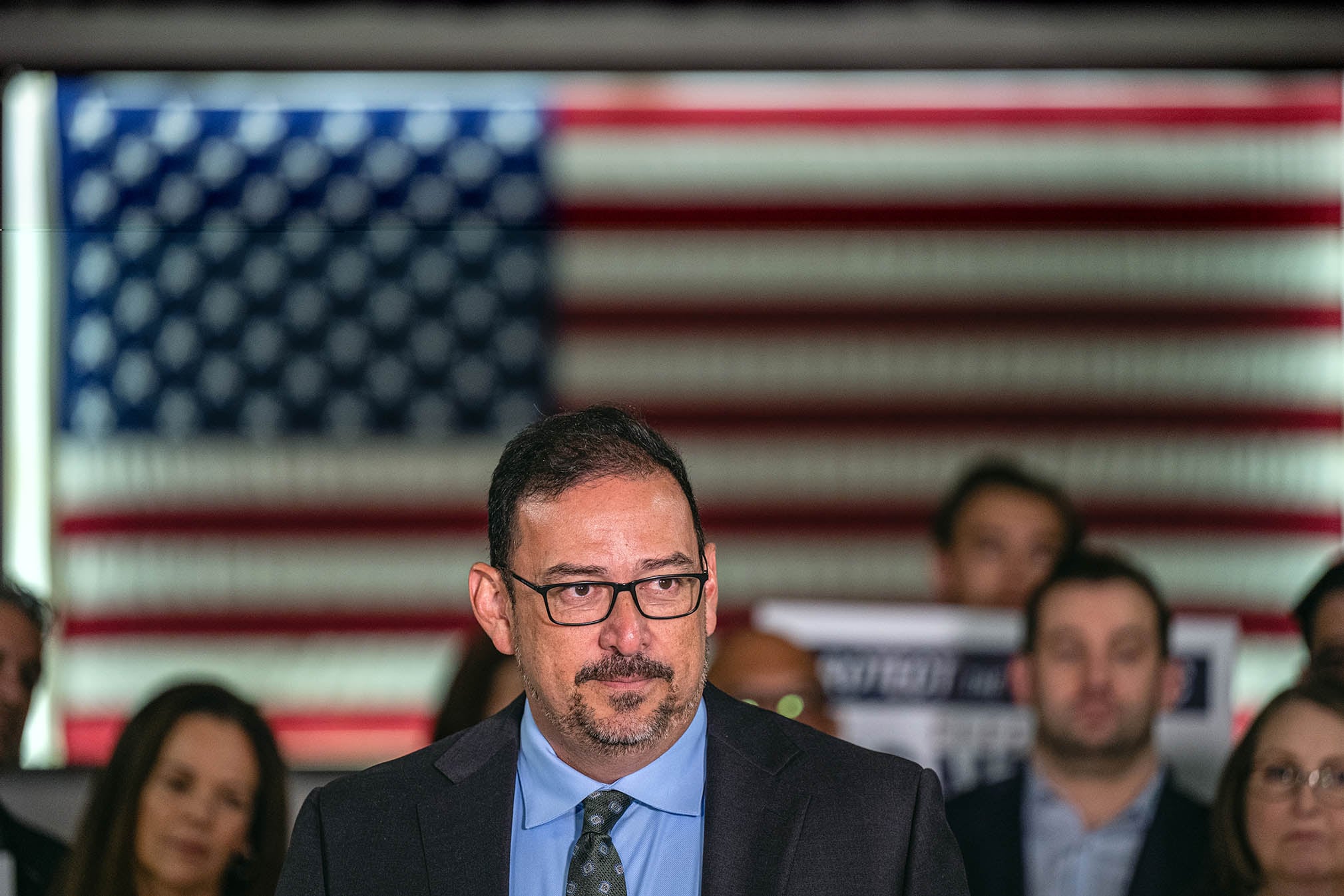Votebeat is a nonprofit news organization reporting on voting access and election administration across the U.S. Sign up for our free newsletters here.
Update, Feb. 1: This story has been updated to reflect a response from Secretary of State Adrian Fontes.
Arizona Republicans filed a lawsuit Wednesday asking a judge to throw out numerous election rules made by Secretary of State Adrian Fontes, including one that forces supervisors to certify their election results without delay or changes and another that could potentially lead to a county’s election results not being counted if county officials don’t finalize them on time.
The rules are included in the Elections Procedures Manual approved in December by Fontes, the governor and the attorney general — all Democrats. It says county supervisors have no authority to change vote totals, reject the election results, or delay certifying the results without statutory authority or a court order. And it says if a county doesn’t provide the secretary of state its certified results, known as a canvass, by the time the secretary must certify statewide results under state law, the secretary “must proceed with the state canvass without including the votes of the missing county.”
This appears to be an attempt to address the potential that county supervisors could protest election results by delaying or blocking certification, as two Republican Cochise County supervisors tried to do after the midterm election.
State Senate President Warren Petersen and state House Speaker Ben Toma, both Republicans, filed the lawsuit in Maricopa County Superior Court on Wednesday alleging that state law doesn’t give the secretary of state the authority to make rules about how election results are finalized, and even if Fontes did have this right, these rules are not in alignment with state law.
They say Fontes’ new manual is an attempt to “disenfranchise voters and subvert state election laws.”
“Arizona law does not require boards to vote a certain way,” Petersen wrote in a statement. “If a board improperly fails to certify election results, the proper solution is to turn to the courts for help, not disenfranchise all voters within an entire county.”
The challenges to the manual come as the 2024 election is already underway, with counties sending out ballots for the state’s March 19 presidential preference election to military and overseas voters this week. Legal fights can be lengthy, and it’s hard to say whether the lawsuit will be resolved in time to affect the way this year’s elections are run.
A spokesperson for Fontes said Thursday the office is preparing a legal response to the lawsuit.
“The EPM was created with input from county officials, tribes and through public comment before forming a consensus with Governor Katie Hobbs and Arizona Attorney General Kris Mayes,” said communications director Aaron Thacker. “Secretary Fontes is prepared to defend the EPM that was created to provide uniformity and clarity for elections officials, so they can administer free and fair elections for the people of Arizona.”
In addition to the conflict over certification, Petersen and Toma allege Fontes is illegally delaying the implementation of a new law enacted in 2021 that requires county recorders to take voters off the mail voting list if they don’t use a mail ballot for two consecutive election cycles. The lawmakers believe that the first removals under the new law should happen after the 2024 election cycle, rather than after the 2026 election cycle, as Fontes said.
Other disputes included in the lawsuit include how and when recorders are instructed to remove non-citizens from the voter rolls, and some requirements for people who collect signatures for ballot measures.
In 2022, as Republicans pressured county supervisors across the state not to certify their elections over unproven claims of fraud and illegal voting machines, it was unclear what would happen if a county did not certify its results in time. When two Republican Cochise County supervisors refused to vote to certify the county’s election by the deadline, then-Secretary of State Katie Hobbs and other parties sued. A judge then ordered the supervisors to vote to certify, and the majority of the board complied.
State Attorney General Kris Mayes later opened an investigation into the Cochise delay, and a state grand jury has indicted the two supervisors for conspiracy and interference with an election official. A trial is scheduled for May.
State law requires county supervisors to canvass their election by 20 days after the election, a non-discretionary duty. The only exception is if there are any missing returns among polling place results — and even that only warrants a temporary postponement.
The language Fontes has in the manual on this topic is similar to that in the prior manual, from Hobbs in 2019, but he added the language regarding delaying the certification.
State law also requires the secretary of state to canvass statewide general elections on the fourth Monday following the election.
The prior Elections Procedures Manual did not address what the secretary of state should do if the secretary didn’t have a county’s results by the secretary’s deadline. Neither did Fontes’ initial draft of his new manual, submitted to Hobbs and Mayes for review in October.
The new language to the manual came after Hobbs, now the governor, and Mayes began suggesting edits in October. It does not mention the courts as a potential remedy to solve disputes over election results, the solution advocated by Republicans.
Jen Fifield is a reporter for Votebeat based in Arizona. Contact Jen at jfifield@votebeat.org.






